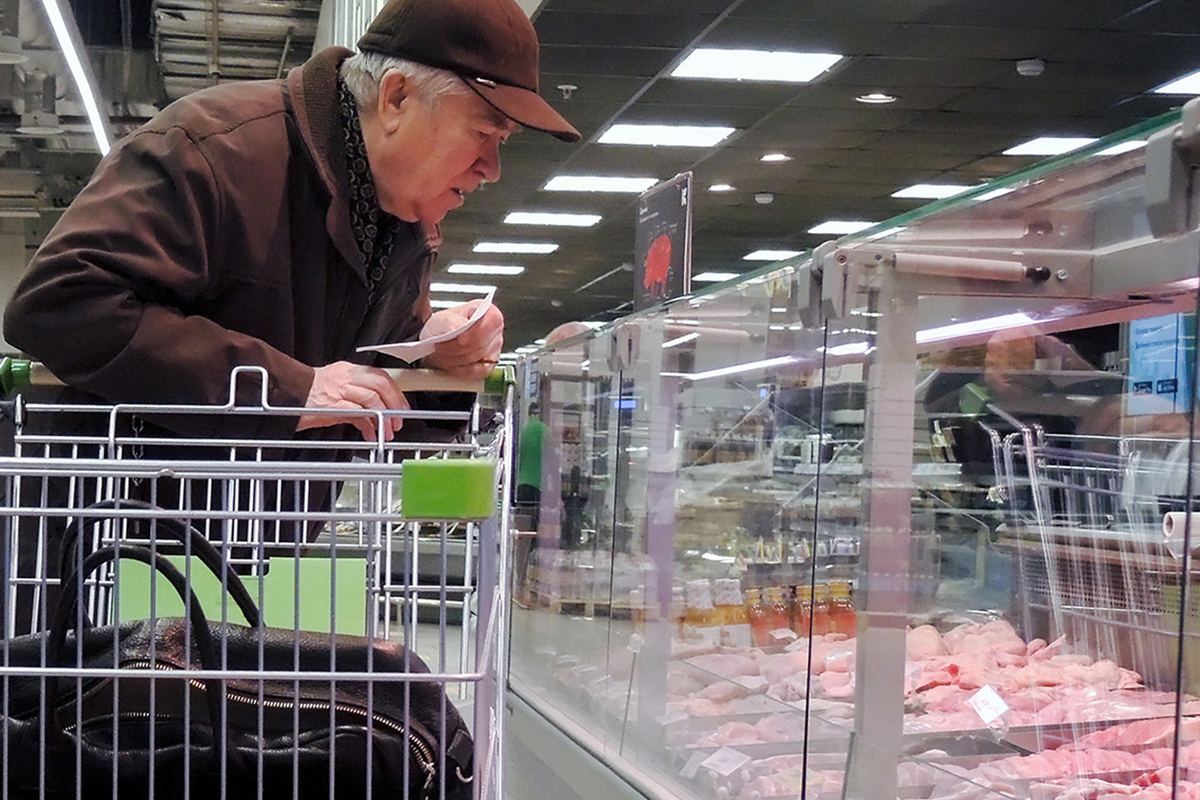Changes are being prepared to the rules for trading perishable products: what will happen to prices
[ad_1]

“The authorities will have to look for new ways to put pressure”
A government commission has approved a bill that changes the rules for trade in perishable products. If adopted, retail chains will now have to meet new payment deadlines for wholesale supplies of products such as meat, poultry, fish, milk, cheeses, fresh fruits and berries. In essence, the balance of interests will be shifted in favor of manufacturers, and retailers will only have to adapt to the situation. Will this lead to lower prices for these goods? “MK” turned to experts for an answer to this question.
The document submitted to the State Duma by a group of deputies limits the period for retail chains to pay for products with a shelf life of less than 5 days to 4 working days from the date of actual receipt, and with a shelf life of 6 to 9 days inclusive – to 8 working days. Under current regulations, retailers must pay for food products with an expiration date of less than 10 days within 8 business days. And for the bulk of socially significant products, this period is 25 days or more.
As stated in the explanatory note to the bill, the new measure will allow producers of perishable products: firstly, to reduce the liquidity deficit; secondly, reduce the need for short-term lending; thirdly, to contain prices for goods for consumers; fourthly, ensure uninterrupted supplies to stores. The bill also proposes to reduce the payment period for a number of socially important products, including those with a long shelf life – salt, sugar, flour, to 10 days from the date of delivery. This point requires improvement, since, according to experts, the supply of such goods may decrease. The government proposes to set the date of entry into force of the law no earlier than September 1, 2024, and not from the date of official publication, as previously planned. This is necessary “to adapt the business, including the renegotiation of supply contracts.”
Let us recall that last December, in order to stabilize prices on the domestic market, the Cabinet of Ministers established quotas for the import of beef and poultry meat into the country with reduced duties in 2024. Their size has not changed compared to 2023 – for beef it is set at 570 thousand tons, for poultry meat – 364 thousand. Within the quota, the import rate is 15%; outside of it, it is protective in nature – 50%. This decision was made because last year was marked by a serious – by 23% per kilogram – increase in the price of poultry meat. Beef on the bone increased in price by 6.5%, boneless beef – 4%, pork – 14.4%.
Will the government’s proposed measure help curb price increases? Retail representatives, naturally, are not delighted with the innovation.
“There is a certain balance in trade regarding payment terms,” says Andrey Karpov, president of the Russian Association of Retail Market Experts. – The costs faced by both suppliers and retail chains have long been included in the final cost of the goods by both parties. And now this balance will be upset.” The expert believes that retailers, in order to level the situation and stay with their own, will have to, on the contrary, raise prices on the shelves. Or manufacturers should take a counter “step of goodwill” by reducing the price of their products. Accordingly, Karpov believes, the new measure will create additional difficulties in the market: it will be necessary to rebuild business processes on both sides.
Human rights activists have a different opinion. “The new measure will reduce the credit burden of producers of perishable products at the expense of retail chains,” says Pyotr Shelishch, Chairman of the Russian Consumer Union. “But then they, in turn, will need loans to pay the supplier for goods that have not yet been sold. This could boomerang on manufacturers if the chains react by reducing purchases of “perishable goods.” Including through refusal to agree on higher delivery prices, even when there are objective grounds for them.”
As a result, according to Shelishch, there is a risk that retail prices are unlikely to change, but the reduction in assortment and purchase volumes will hit suppliers and will not please consumers, since the authorities will have to look for new ways to put pressure on trade. In general, according to the expert, the measure proposed by the government looks fair. “However, it would be even fairer to transfer money to the supplier for the goods sold by the network every day, in accordance with the data from the online cash registers through which the goods were paid for by customers,” Shelishch is sure.
[ad_2]
Source link






